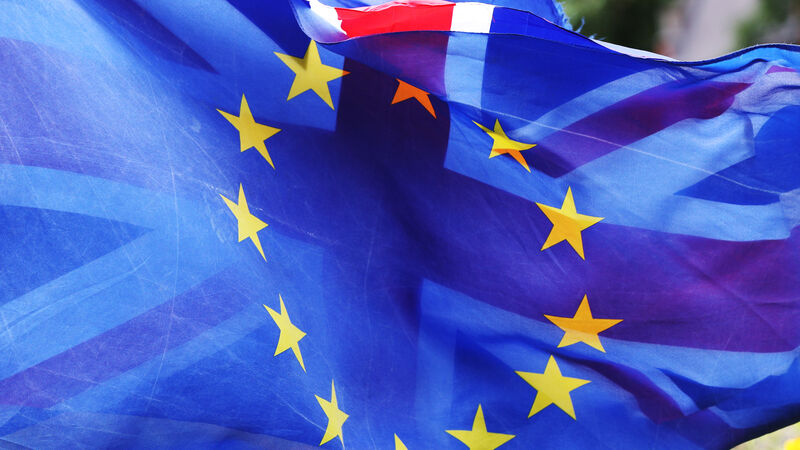John Whelan: 90,000 Irish firms on Brexit cliff edge

Brexit comes at a time when businesses are already hugely challenged as a result of Covid-19.
Irish businesses seem caught in a death-like grip with the UK market.
This time last year the Government launched a fresh communications campaign, one of many since the UK Brexit vote in 2016.
It focused on the 90,000 Irish businesses trading with the UK and urged them to seek other markets.
The response has been remarkably sanguine, with the most at risk agri-food sector continuing to rely on the market for over a third of exports and almost half of all food imports.
Since 2016, either in a remarkable leap of faith that the British would not proceed, or an unwillingness to accept the loss of their traditional market, exports to the UK and particularly the agri-food exports have increased every year.
In recognition of the continued and extensive reliance on the UK market, the Government last week published its Brexit Readiness Action Plan, building on its Brexit Contingency Action Plans of prior years.
Overall trade with the UK was valued at about €92.9 billion in 2019.
It is a vital market for Ireland, and particularly SMEs will find it very difficult to remain competitive and absorb increased costs associated with Brexit.
A range of studies in recent years all points to substantial impacts on the Irish economy.
The difficulty for 90,000 businesses that both sell into and buy from the UK market is that, by and large, this is the only market that these companies trade with internationally.
Many studies by the Economic and Social Research Institute (ESRI) have confirmed this trend has not changed over the past decade, despite the urgings by Enterprise Ireland and Bord Bia.
Part of the dilemma for Irish businesses — particularly the SMEs that make up the bulk of the 90,000 — is that profit margins are better for them selling into the UK than other markets, as it entails lower fixed costs, similar technical standards, and legal systems.
By comparison, diversifying into other markets entails higher transport costs, language problems, new labelling, and a business culture that is very different from that on the home market.
There are other indicators from exporting firms that if Brexit throws up significant trade barriers, Irish companies dependent on the UK market would, rather than diversify, be more likely to relocate at least part of their operations.
Brexit comes at a time when businesses are already hugely challenged as a result of Covid-19.
Elements of Brexit readiness work, such as business and employment supports, are already being applied in response to the pandemic.
The policy response to the spread of Covid-19 has resulted in a sharp contraction in global and domestic economic activity.
In order to inform Budget 2021, the Department of Finance and the ESRI have examined the interrelationship between Covid-19 and Brexit on short-term economic prospects.
Overall, this work suggests that if you add the Brexit shock to that of the pandemic the number of sectors exposed to risk increases but the impacts are not magnified by the interaction of the two economic shocks.
Many of the Government’s existing Brexit supports have been applied, to respond to Covid-19.
These, along with the wider Covid-19 economic response measures, should assist businesses to improve their resilience ahead of the end of the transition period.
However, comfort in these difficult times comes from the continued expansion of Ireland’s exports, the only country across the EU 27 nations to show international sales growth in the first half of the year.



